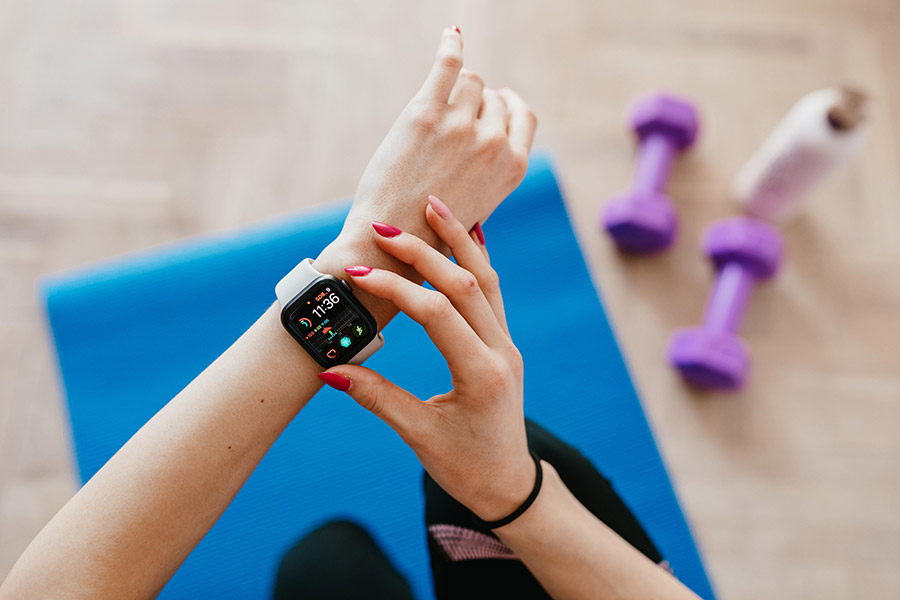In a time when many are trying to be healthier, wearable fitness trackers such as Fitbits and Apple watches are very common tools to help people track their workouts, diet, and overall health. In fact, one recent poll determined that 1 in 5 Americans regularly use wearable fitness trackers and health apps. However, while these trackers can help many stay fit, the information logged also has the potential to support or upend evidence in a personal injury case. As personal injury attorneys, it’s very important to understand the impact fitness trackers can play in future cases as well as how to handle this data.
How Fitness Trackers Work
Fitness trackers are designed to monitor your activity and the location where this activity occurred. Many models of Fitbits, Garmin watches, Apple watches, and various other forms of fitness trackers are designed to note when you’re sitting, standing, exercising, or even sleeping. Most are also equipped with a GPS function to help you track your exercise route. This data is compiled in corresponding health apps, which can help users monitor and adjust their fitness routines. While this is helpful information for the user, this collection of activity data can have significant implications for personal injury cases. Given the prevalence of fitness trackers in the US, many attorneys are turning to this data as evidence.

Can Trackers Help or Hurt Your Case?
It was only a few years ago that fitness tracker data was first allowed into evidence in personal injury cases. Now, it has become common practice to include fitness tracker data as evidence. In some instances, this evidence can benefit your client. The collected data on a fitness tracker (and corresponding wellness app) can be useful in establishing where your client was during an accident. The GPS location in these devices can help in disputes over where and when an accident may have taken place. Tracker data can also help identify the effects of an injury. Because fitness trackers log sleep as well as activity, they can demonstrate a significant reduction in activity or restful sleep after an accident. This is a useful tool when injuries are not visible through bruising or cuts. Finally, fitness trackers can reveal the level of commitment your client has put toward recovery by documenting doctor-recommended rest and physical therapy.
However, fitness trackers also have the potential to derail a client’s personal injury case. Any information on a tracker is available to both sides in a case. Opposing attorneys may mine both the data on the tracker as well as any comments or progress mentioned in online communities connected to wellness apps to undermine your client’s claim. In these instances, any activity or locations that disprove your client’s claim may be used as evidence against their case.
Although fitness trackers can serve as useful evidence, it’s important to remember that this technology is not always reliable. If a client does not regularly charge their device or only wears the device occasionally, the data is less helpful. Moreover, there can be technical glitches when the data is transferred from the device into the app, which can then render the information useless or damaging to their case. Fitness trackers are also vulnerable to hacking or sharing, which could render the data totally invalid.
Tips for Addressing Fitness Tracker Data
When it comes to using fitness tracker data in a personal injury case, there are a few important things to keep in mind. First, find out if your client wears a fitness tracker and how often they use the device. Knowing this data upfront can help you as you prepare a case. Once you know a client’s usage habits, remind them to maintain this same behavior to help track any activity which might support their injury claim. Document any discrepancies between activity before and after the accident. However, keep in mind that all activity is available to both parties, so it is also important to remind your client of this as they continue to use their devices. Other attorneys will be looking for any sustained or increased physical activity which disproves a personal injury claim. Finally, remember that while fitness tracker evidence is becoming more commonplace in personal injury cases, the data can be unreliable due to user error, hacking, or technology glitches. So, while a fitness tracker data can help a personal injury claim, it is still best to build your case around stronger, more reliable evidence.
With USClaims, pre-settlement funding can help your clients pay those unexpected expenses in anticipation of a court judgment or settlement. Call 1-877-USCLAIMS today for the information you and your clients need and deserve.